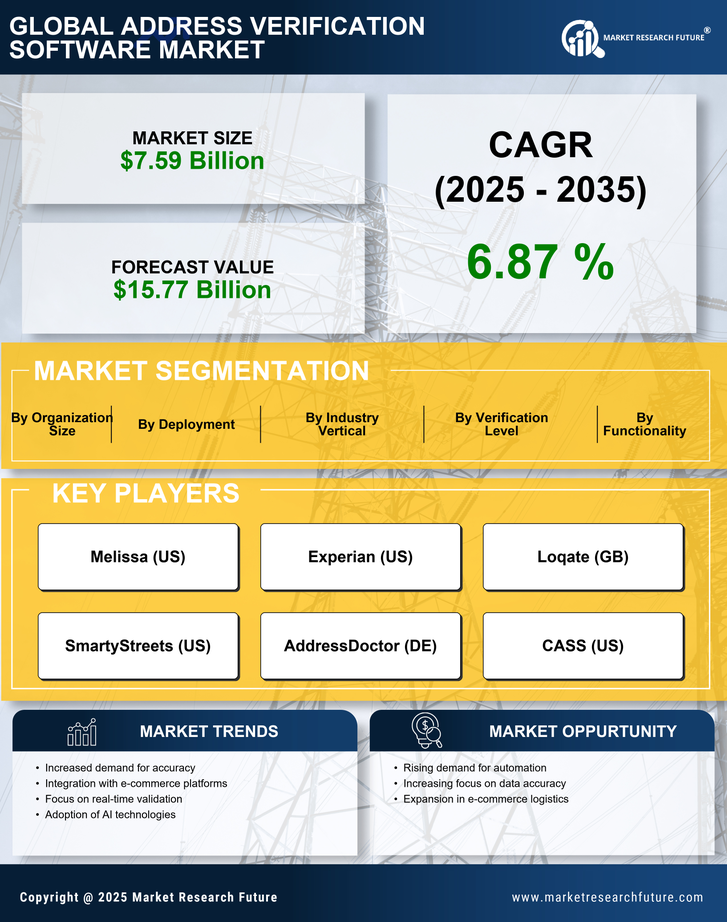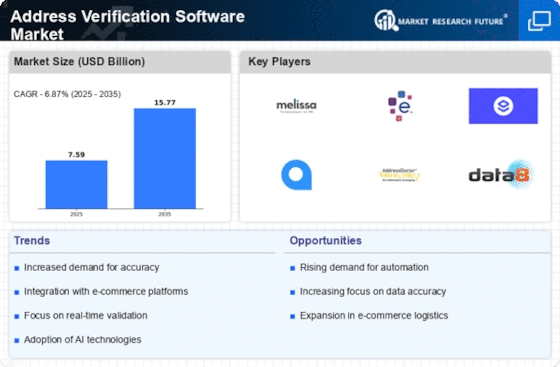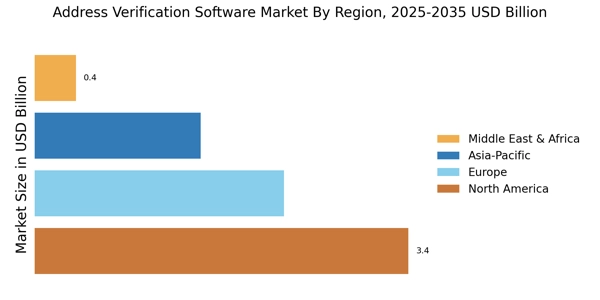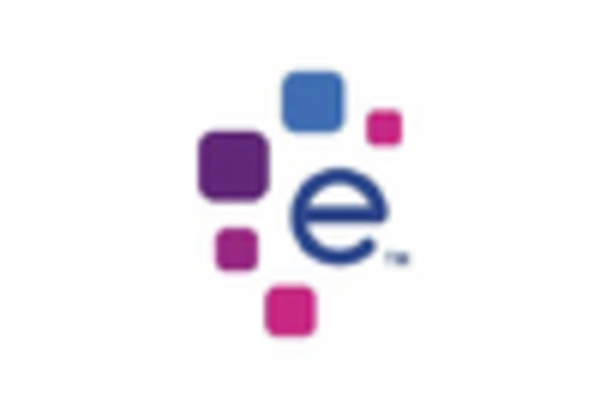Rising Demand for Accurate Data
The Address Verification Software Market is experiencing a notable surge in demand for accurate data management solutions. As businesses increasingly rely on data-driven decision-making, the need for precise address verification has become paramount. Inaccurate addresses can lead to significant financial losses, affecting logistics, customer satisfaction, and overall operational efficiency. According to recent estimates, organizations that implement address verification solutions can reduce delivery errors by up to 30%. This growing awareness of the importance of data accuracy is driving investments in address verification technologies, thereby propelling the Address Verification Software Market forward.
Regulatory Compliance Requirements
The Address Verification Software Market is significantly influenced by the increasing regulatory compliance requirements across various sectors. Governments and regulatory bodies are imposing stringent guidelines to ensure that businesses maintain accurate customer information. For instance, financial institutions are mandated to verify customer addresses to prevent fraud and money laundering. This regulatory landscape compels organizations to adopt address verification solutions to comply with legal standards. As a result, the Address Verification Software Market is likely to witness a steady growth trajectory, as companies prioritize compliance to avoid penalties and enhance their reputations.
Increasing Focus on Customer Experience
The Address Verification Software Market is witnessing a heightened focus on customer experience as businesses strive to meet evolving consumer expectations. Accurate address verification plays a critical role in ensuring timely deliveries and reducing errors, which directly impacts customer satisfaction. Companies are recognizing that a seamless customer experience can lead to increased loyalty and repeat business. As a result, investments in address verification solutions are becoming a priority for organizations aiming to enhance their service offerings. This trend is expected to drive growth in the Address Verification Software Market as businesses seek to differentiate themselves in a competitive landscape.
Growth of E-commerce and Online Services
The Address Verification Software Market is benefiting from the rapid growth of e-commerce and online services. With the rise of digital transactions, businesses are increasingly facing challenges related to address accuracy. E-commerce platforms require reliable address verification to ensure timely deliveries and enhance customer satisfaction. It is estimated that the e-commerce sector has expanded by over 20% annually, creating a substantial demand for address verification solutions. Consequently, the Address Verification Software Market is poised for growth as companies seek to streamline their operations and improve the customer experience through effective address management.
Technological Advancements in Software Solutions
The Address Verification Software Market is being propelled by continuous technological advancements in software solutions. Innovations such as artificial intelligence and machine learning are enhancing the capabilities of address verification tools, allowing for more accurate and efficient processing of data. These technologies enable real-time verification and automated updates, which are crucial for businesses operating in dynamic environments. As organizations increasingly adopt these advanced solutions, the Address Verification Software Market is likely to expand, driven by the demand for enhanced functionality and improved user experiences.


















